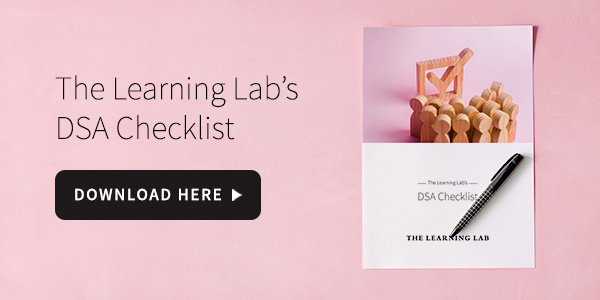
If you have a Primary 6 child, we know you may be anxious about your child's DSA preparation, especially when it pertains to the DSA interviews.
In this article, we will be looking at the Direct School Admission – Secondary (DSA-Sec) exercise, along with five effective tips your child can answer DSA questions during the interview(s).

Understanding How the DSA Programme Works
The DSA-Sec programme offers successful applicants the chance to secure a place in secondary school ahead of the Secondary 1 posting on the basis of talents and achievements that may not be reflected in the outcome of the Primary School Leaving Examination (PSLE).
Once the application period is over, schools will proceed to the selection process, where shortlisted applicants may be asked to attend DSA Selection Camps or interviews at the DSA-Sec school. Much like how companies conduct job interviews, schools use these camps and interviews to get to know candidates better and determine if they are suitable for the school.
After all, every school wants students who can add value to their niche areas. It is thus paramount that your child uses these interviews to make a lasting impression that distinguishes him or her from the rest of the candidates.
For most 12-year-olds, the DSA interview would possibly be the very first formal interview experience. It can be intimidating and that is why sufficient preparation and your support are critical.
One of the best ways to get your child ready for the interview is by going through common interview questions with him or her. Ample practice will help your child build their confidence in acing the DSA interview.
Common DSA Interview Questions and How Your Child Should Tackle Them
The types of common questions asked during the DSA interview are endless but we have broken them down into three main sections:
i. Questions about oneself
ii. Questions about the school and programme
iii. Questions about one’s academic track record
The first category is aimed at understanding your child’s talent, personality, and goals for learning a particular skill. The second explores your child’s understanding of the school’s values and programmes, and seeks to align it with his or her motivation for applying to the school. Lastly, the third set of DSA interview questions aims to understand your child’s holistic performance by taking their academic achievements into consideration.
More importantly, how can you help your child ace the DSA interview? Ms Eunice Fu, English Subject Head for Upper Primary programmes at The Learning Lab United Square, recommends these five useful pointers.

1. Organise Your Answers
During the DSA interview, your child's interviewer may begin with common questions such as, "How do you spend your free time?" or a harder question like, "What sets you apart from other applicants?"
When sharing about his or her hobbies and favourite pastimes, your child may have a number of things to share. It is, therefore, important for your child to organise his or her thoughts because a well-structured answer reflects coherence and composure.
Your child may want to try giving responses like, “I like spending my free time playing real-time strategy games because I think these games are both informative and fun. Real-time strategy games teach me the importance of strategising my resources and setting my priorities. In addition, I am exposed to risk management as I have to be able to manage and take risks in order to be successful in such a game.”
What makes the above answer great is the level of maturity your child showcases. The response to the DSA question demonstrates your child's ability to see that even a fun activity, such as video games, can be productive in honing a real skill. Moreover, by analysing its benefits, your child can explain how playing adds value to his or her character. Coincidentally, being organised in your thoughts and responses is an important learning skill to upgrade when moving from primary school to secondary school.
Additional tip: Avoid rambling answers or responses that are too brief!
When your child gives a long, unstructured answer, it may signal to the interviewer that he or she does not have a clear train of thought. On the other hand, giving answers that are too brief may give the impression that your child is not prepared for the DSA interview, or is unable to substantiate his or her point.

2. Answer DSA Questions with Personal Experiences
One way your child can captivate interviewers is by boosting his or her answer with personal anecdotes. Remember to encourage your child to let his or her personality shine!
Your child's thoughts, feelings and opinions are unique. When he or she answers the DSA interview questions with personal stories and experiences, it makes your child more memorable to the interviewer and shows originality. Attending English enrichment classes to prepare for the DSA interview questions can further help your child express their anecdotes in a clear, concise manner.
Based on her experience, Ms Fu shares, "I once had a student who shared his love for swimming during his free time. He found this activity particularly enjoyable not only because it was a relaxing breather from hitting the books but also because it was a constant reminder of how he had faced his irrational fear of there being a shark in the water."
"Three years have passed and I still remember this boy fondly," she continued. "A boy aced his DSA interview by sharing how he struggled with and overcame a fear I once struggled with too, and I am sure I am not alone in this!"

3. Give Honest Responses to the DSA Interview Questions
Tackling questions about the school your child has applied for and the programmes the school offers can be tricky.
During the DSA interview, interviewers may ask your child common questions ranging from, "Why do you want to enrol into our school?" to the sweat-inducing, "Have you applied to other schools? If so, why are you applying to our school?".
When responding to such questions, it is important for your child to be honest. Your child need not worry about sounding indecisive or uncertain about his or her interest if his or her answer is a "Yes, I have applied to other schools" for the latter question.
Your child should further support his or her stand on the DSA questions with answers such as, “In addition to applying to your school, I did apply to School Y as well. I applied to School Y because it has a strong robotics team. While I’m passionate about sports Z, a niche sport in your school, robotics is another interest that I would be keen to develop further.”
More often than not, interviewers are aware of such cases and appreciate an honest answer — your child will not be penalised for applying to other schools. What is more important is the way your child communicates the reason behind his or her decision and why the schools are valuable to him or her in each of their own ways.

4. Explain Your Answers to DSA Questions Clearly
In some cases, a student's reason for applying to more than one school may be similar. If your child faces this situation, he or she may be anxious about how to respond to the DSA question in a convincing and honest manner.
In this situation, your child should focus on giving an answer that clearly substantiates why he or she is as keen or even more interested in entering the school he or she is being interviewed for.
Your child could respond with, “Yes, in addition to applying to your school, I did apply to School Y as well. I applied to School Y because it also has a strong team in sports Z. However, I have a friend who was from your school and he always shared positive experiences of his time on his team, having enthused over and over again about the nurturing coaches he had during his school days. Convinced by the rewarding experiences that my friend has gained, I am sure about my decision to enter your school.”
Such an answer clearly shows your child's reasons for applying to the school. In fact, what makes the answer above noteworthy is the positive impression it creates of your child: the interviewer will be able to see your child's genuine interest in the school as he or she has taken the effort to really find out about the school's sports team — about its coach and the type of experiences he or she could gain from being on the school's team — which could help him or her ace the DSA interview.

5. Be Confident When Answering the DSA Questions
Last but not least, interviewers may pose various questions during the DSA interview to delve further into your child's personality traits, achievements, and leadership potential.
The questions in this section tend to include those along the lines of, "Other than your academic record, what have you done to demonstrate your strengths?".
When interviewers ask such questions, they look out for confident answers where students express their thoughts and opinions articulately. in an articulate manner. Your child should not be shy about sharing how well he or she has done in school and showcase his or her drive and tenacity to improve in multiple areas (academic and non-academic).
If your child has strong leadership capabilities, records of him or her holding key leadership positions, like Head Prefect, should be highlighted in response to the questions during the DSA interview. Your child can share testimonials from his or her school and even submit recommendation letters from teachers to boost his or her chances of being accepted into the desired school.
Ready to Ace the DSA Interview?
Preparing for the DSA interview is just one part of your child's journey as they make the transition to secondary school, but an important one nonetheless. To ace the DSA interview, your child will need to:
- Organise their answers
- Answer the DSA question with personal experiences
- Give honest responses to the DSA interview questions
- Explain answers to the DSA questions clearly
- Be confident when answering the DSA questions
To help ensure that your child is on the right track, download this simple and useful DSA checklist. Plus, check out our list of Sec 1 tuition courses designed to help your child face new challenges in their DSA-Sec school.
The Learning Lab is now at locations. Find a location that suits your needs.
If you have any questions about our range of programmes or class schedules, you may contact us at 6733 8711 or drop us an email at enquiry@thelearninglab.com.sg.
Have Questions? We're happy to help.

